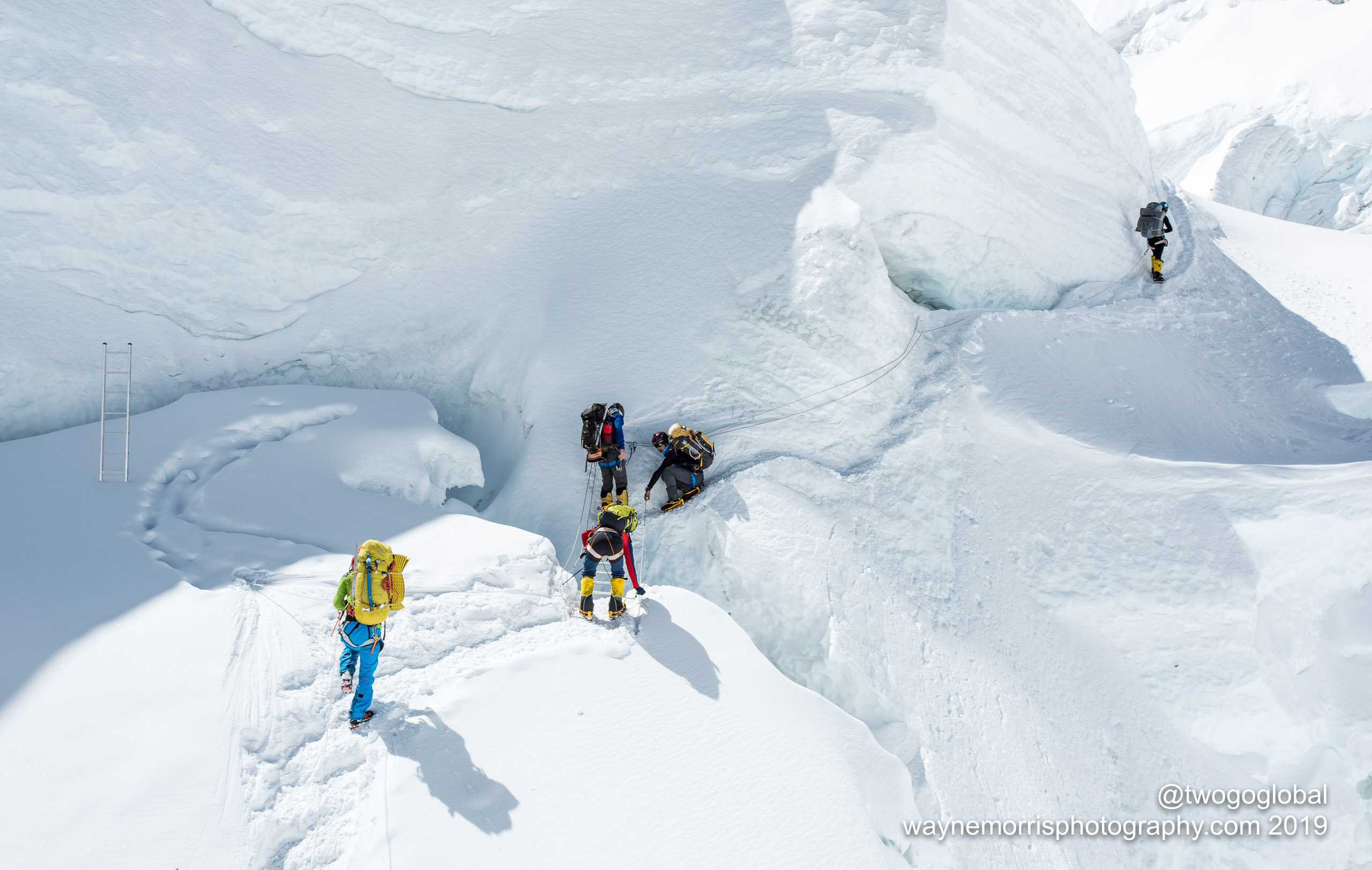[wp_megamenu menu=”469″]

Each year we work with our legendary Nepali climbing guides to identify an unclimbed peak in a remote region of Nepal for our ascent. The region, height, and difficulties vary year to year and are kept top secret until the team is signed up to preserve it as a world first.
This climb is open to anyone with an adventurous spirit who wants to get off the beaten path and experience climbing the way it was centuries ago. Many of our climbers are Seven Summits and Himalayan veterans are looking for something a little more wild, while others are experienced climbers that have never climbed in Nepal before and want a technical challenge.
We will be climbing between 6,000 and 7,000m so some previous altitude experience is recommended.
Climbers joining this team need to realize that, despite our best efforts to provide air-tight logistics and climbing, that this is a true adventure off the beaten path so there will be hiccups and climbers need to be willing to, and comfortable, rolling with the punches. Not everything will go as planned and that is the norm not the exception. Since these regions are not tourism destinations the journey will be rugged and the climbing obstacles somewhat unknown.
This is exactly what we are after but it is also why you need to have complete trust in your expedition company.
More than on any other expedition on a First Ascent demands superior guidance, safety and logistics across the board.
Safety & Success
Your safety and success are the top priorities, in that order.
A First Ascent while different in its pioneering nature still follows all of the same extremely high safety protocols that we employ on all of our expeditions.
For instance, we will send scouting parties ahead of the main team to assess the peak, identify and map hazards and mitigate risks as much as possible. Wherever the terrain is steep with fall potential our Sherpa will setup fixed lines to make the new route more approachable and safe and while we are in a remote area we still have generous redundancies, medical and communications equipment to cover any eventuality.
On expedition our Guides will give you daily briefings on the route, weather, plan of attack and schedule. In line with our other expeditions we will make conservative calls when it comes to risks, conditions and acclimatisation schedules.
Leadership
Your guides, leaders and Sherpa team will be seasoned experts with proven track records. Their strategy will be patient, conservative and well planned which will give you the best opportunity for success. Remember that the mountain is always there so your safety must come first.
All of our Nepal First Ascent expeditions are organized and overseen by CTSS owner Mike Hamill and led by legendary Nepali guide, Tendi Sherpa.
Tendi’s leadership and experience in remote regions of Nepal are both unequalled and indispensable. He is one of most highly sought-after Guides from Everest to Aconcagua and beyond, and you will love having him at the helm for this experience.
Skills Clinic & Training
Although this is an intermediate level climbing expedition and we expect climbers to be strong and capable on steeper terrain, we will still run comprehensive training clinics while on expedition to shake out and refresh our skills making sure our entire team is ready to ascend the peak.
Don’t worry if you haven’t done extensive amounts of ice or rock climbing and haven’t been on exposed alpine terrain in a while as you can expect your Guides to take you through all of the techniques you will use on the climb ahead s well as some of the often overlooked, more intrinsic climbing skills like the rest step, pressure breathing and pacing.
Marginal Gains - The small things add up!
Have you heard of the “Marginal Gains” philosophy?
The idea is that by capitalising on every little hidden advantage, 1% here, 1% there, gains quickly compound into a huge overall improvement.
CTSS prides itself on this kind of innovation across all of our expeditions including our First Ascent Program. We optimize both the big details like guide staff, schedules etc, all the way through to the tiny comfort details. For instance we employ our own chef to serve us hearty, nutritious food which is delicious vs. eating dehydrated or basic camp meals because we know well fed climbers are happy, healthy climbers with more energy on summit day. People may dismiss these little luxuries as ‘soft’ but in fact we invest in them because they are highly strategic. It’s also why we invest in the best Guides & equipment.
Does an operator have strong values?
This is sometimes a little harder to identify as it’s more a feeling than a sales pitch, but you should get a feel for a company through their little interactions, their care factor, their attention to detail, their corporate social responsibility, their response to you.
Mountaineering can be high risk and stressful so pick an operator who has strong core values and a team mentality that aligns with yours so that when things get challenging you can rely on open lines of communication, knowing they will do what they can to support you and keep you safe.
It is this team cohesiveness that flows through to each individual climber and helps them stand on top.